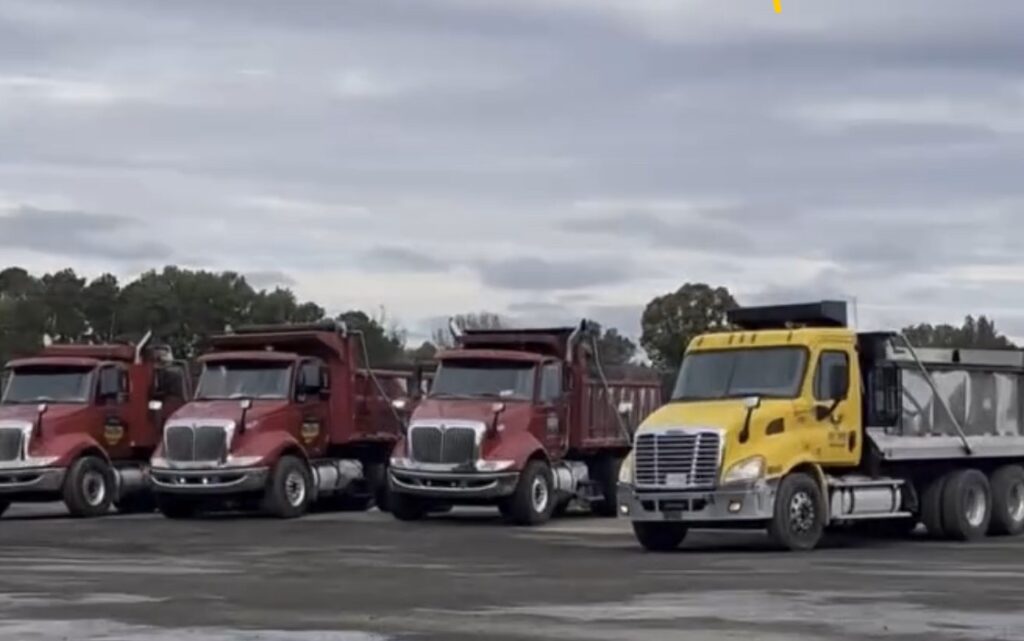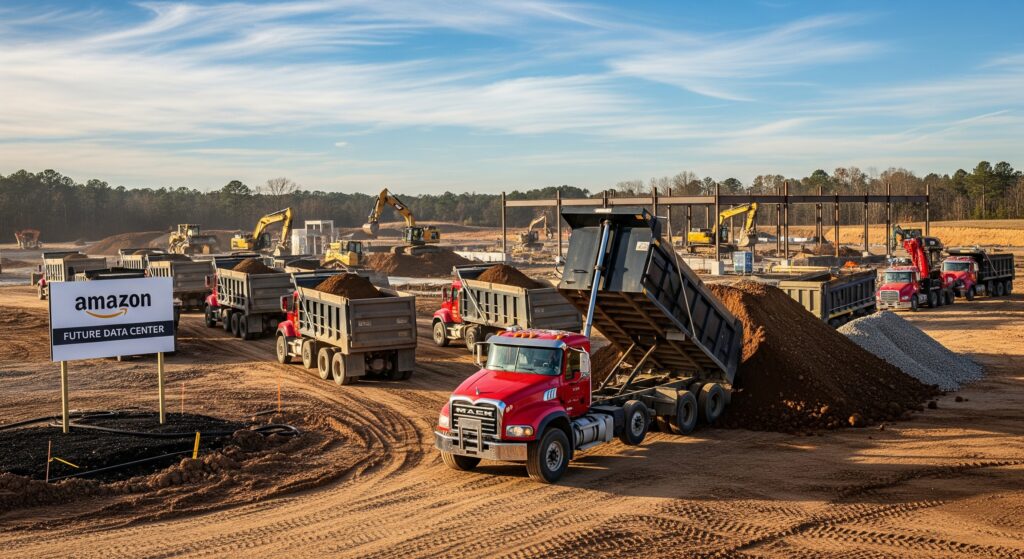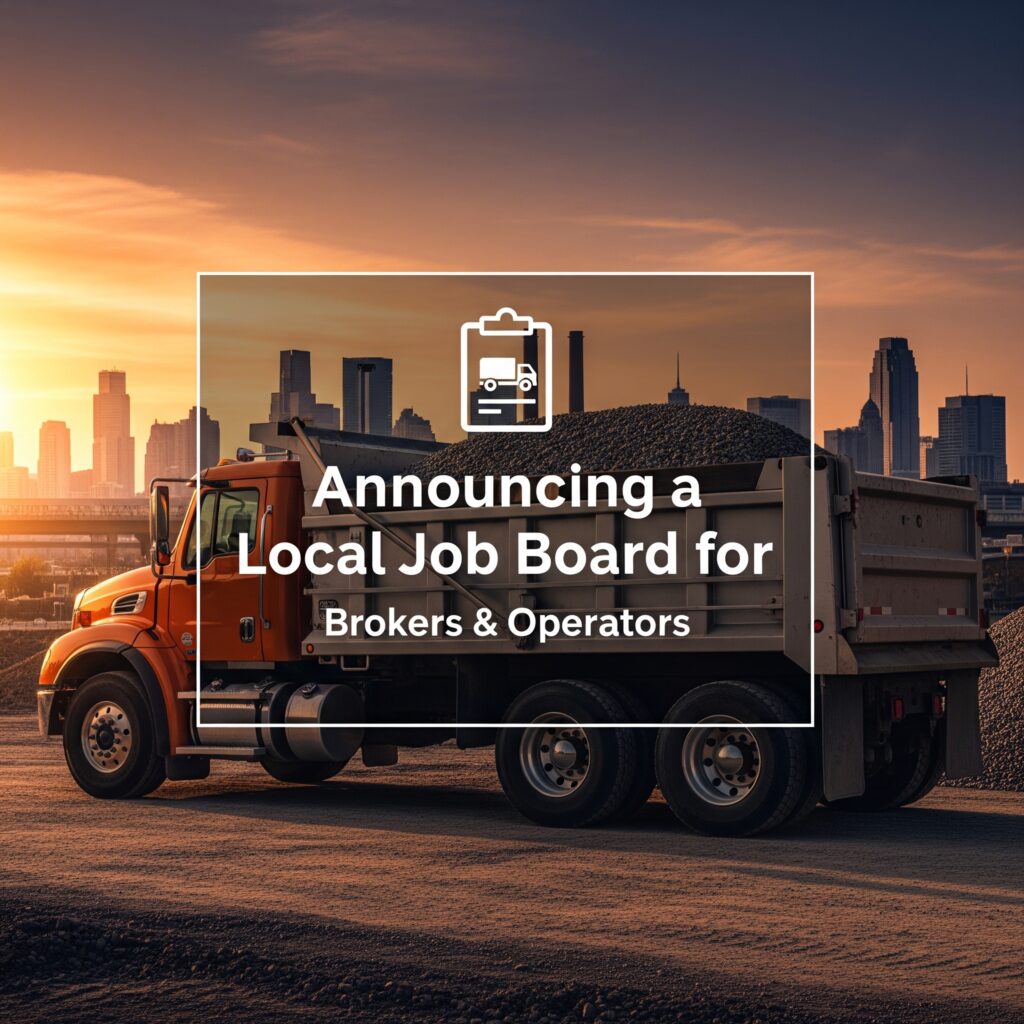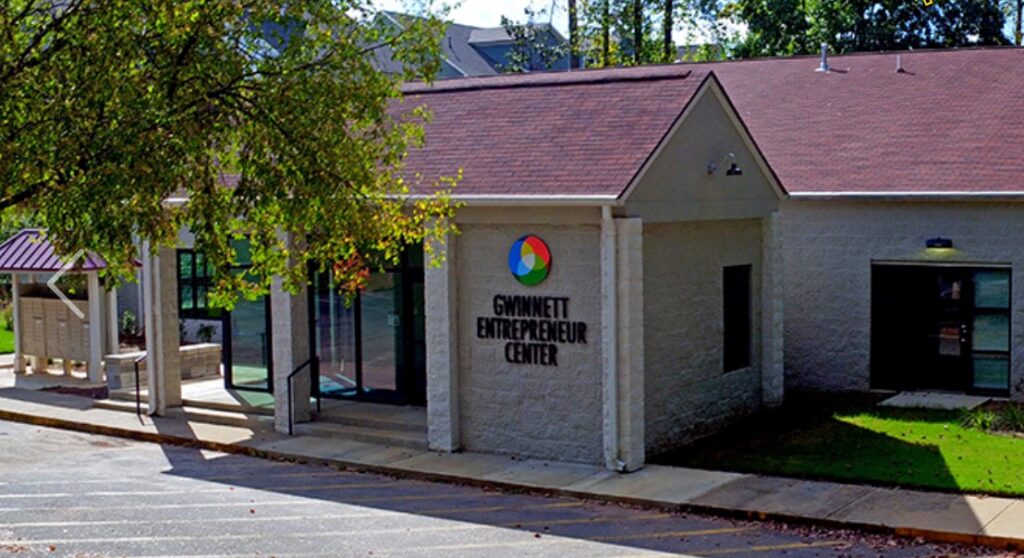So you’re thinking about starting a dump truck business in Georgia? That’s awesome! The construction industry in the Peach State is booming, and there’s always a need for reliable hauling services. From Atlanta’s growing skyline to new developments across the state, dump trucks are essential for moving dirt, gravel, and construction materials where they need to go.
Starting this type of business might seem overwhelming at first, but don’t worry – we’ll break it down into manageable steps that anyone can follow.
Getting Your Legal Foundation Right
Before you can start hauling your first load, you’ll need to make your business official. In Georgia, you’ll want to register your business with the Secretary of State’s office. Most dump truck operators choose to form an LLC (Limited Liability Company). This is a smart move because it protects your personal assets – like your house or savings – if something goes wrong with the business.
You’ll also need to get an Employer Identification Number (EIN) from the IRS, even if you’re working solo at first. Think of this as your business’s Social Security number; you’ll need it for taxes, banking, and pretty much everything else business-related. You can get one for free directly from the IRS website.
Don’t forget about local requirements either. Check with your city or county clerk’s office about business licenses. Some areas have specific rules about operating commercial vehicles from residential properties, so it’s better to know upfront than get surprised later.
Commercial Driver’s License: Your Ticket to Drive
Here’s something you absolutely cannot skip: getting your Commercial Driver’s License (CDL). In Georgia, if your dump truck has a Gross Vehicle Weight Rating (GVWR) over 26,000 pounds, you’ll need a Class B CDL at minimum. Most dump trucks fall into this category.
The CDL test has both written and driving portions. The written part covers general knowledge, air brakes (if your truck has them), and combination vehicles. The driving test is where you’ll actually show you can safely operate a big truck. Many people find it helpful to take a CDL training course, though it’s not required. You’ll also need to pass a DOT medical exam to get and keep your CDL.
Getting your CDL usually takes a few weeks to a couple of months, depending on how quickly you can study and schedule your tests. Don’t rush this part – having solid driving skills is crucial for your safety and your business’s reputation.
Permits and DOT Requirements: Staying Legal on the Road
The world of commercial trucking has a lot of rules, mainly from the Federal Motor Carrier Safety Administration (FMCSA), which is part of the Department of Transportation (DOT). These rules are super important for safety!
- USDOT Number: Every commercial truck that hauls materials for money, or travels across state lines, needs a USDOT number. You’ll apply for this online through the FMCSA. Even if you only plan to work within Georgia, if your truck weighs over 10,000 pounds GVWR, you’ll still need one.
- MC Number (Operating Authority): If you plan to haul loads across state lines for a fee, you’ll also need an MC (Motor Carrier) number. This is your “operating authority.” However, if you only haul within Georgia, you might not need an MC number, but you will need Georgia Intrastate Authority from the Georgia Department of Public Safety (DPS). Make sure you know which one applies to you!
- UCR (Unified Carrier Registration): This is an annual registration that most commercial trucking businesses pay, whether they operate interstate or intrastate. It’s a simple fee that helps fund safety programs.
- IFTA (International Fuel Tax Agreement): If your dump truck will ever cross state lines (even just into Alabama or Florida for a job), you’ll need to register for IFTA. This system makes it easier to report and pay fuel taxes to different states. Instead of calculating taxes for every state you drive through, you report it all to Georgia, and they handle the rest.
- ELD (Electronic Logging Device): Most commercial trucks must use an ELD to track your “Hours of Service” (HOS). These rules limit how long a driver can be on duty to prevent fatigue and accidents. Your ELD will keep a digital record of your driving time.
- Safety Regulations: Beyond permits, you’ll need to follow strict DOT safety rules. This includes regular vehicle inspections (pre-trip and post-trip), maintaining driver qualification files, and participating in drug and alcohol testing programs. Taking these rules seriously isn’t just about avoiding fines; it’s about keeping yourself and others safe on the road.
Insurance: Protecting Your Investment
Insurance for a dump truck operation isn’t cheap, but it’s absolutely necessary. You’ll need several types of coverage to protect yourself, your truck, and your business.
- Primary Liability Insurance: This is mandatory. It covers damages and injuries to other people and their property if you are at fault in an accident. In Georgia, you need at least $750,000 in liability coverage for trucks over 26,000 pounds, but often $1,000,000 is recommended or required by clients.
- Physical Damage Insurance: This covers damage to your own dump truck and trailer.
- Cargo Insurance: This covers the materials you’re hauling (like dirt or gravel) in case they’re lost or damaged during transport.
- General Liability Insurance: This protects you if someone gets hurt on a job site or if you accidentally damage someone’s property while working, outside of driving. Many clients won’t hire you without proof of this coverage.
- Inland Marine Insurance: Consider this coverage. It protects your truck and equipment when you’re working off public roads, like on construction sites or private property.
- Workers’ Compensation Insurance: This becomes important once you start hiring employees.
Shop around with different insurance companies that specialize in commercial trucking. The rates can vary quite a bit, and some insurers understand the dump truck business better than others.
Finding and Buying Your First Truck
Now for the fun part – getting your dump truck! You have two main options: buying new or used.
- New trucks come with warranties and the latest safety features, but they’re very expensive.
- Used trucks cost less upfront but might need more repairs. If you go used, pay close attention to the engine hours and maintenance records. A truck with high miles but good maintenance is often better than one with lower miles that’s been neglected. Always have a qualified mechanic inspect any used truck before you buy it!
Consider the type of work you want to do. Smaller trucks are easier to maneuver in tight spaces, while larger ones can haul more material per trip. Most beginners start with a tandem axle truck, which offers a good balance of capacity and versatility. If you plan to haul very large loads, you might look into a tri-axle.
Unless you have a lot of cash saved up, you’ll likely need to finance your truck. Explore options like bank loans, equipment leasing, or specialized trucking finance companies. Remember to factor in a budget for constant maintenance – regular oil changes, tire replacements, and unexpected repairs are just part of owning a truck. A breakdown can cost you a lot of time and money.
Managing Your Money: Costs and Pricing
Before you even start hauling, you need a clear picture of your finances.
- Startup Costs: Beyond the truck, you’ll have initial costs like permits, licenses, insurance premiums, initial fuel, ELD purchase, and possibly a down payment on the truck.
- Operating Costs: These are your ongoing expenses: fuel (your biggest expense!), maintenance and repairs, tires, insurance premiums, loan payments, tolls, and taxes. You need to know these numbers cold.
- Pricing Your Services: Dump truck services are typically priced in a few ways:
- Per ton: Common for aggregate materials like gravel or sand.
- Per hour: Good for local jobs where you might be waiting for loads or working on site.
- Per load: Simple, but you need to ensure the load size and distance make sense for your costs. Knowing your costs inside and out is essential to setting profitable rates and making sure you don’t lose money on a job.
Getting Paid Faster with Factoring (Like Chummy Funding!)
When you haul a load for a customer, they usually don’t pay you right away. Many construction companies or brokers pay in 30, 60, or even 90 days! Waiting that long for your money can be tough, especially when you have to pay for fuel, truck payments, and driver wages today. This is where a company like Chummy Funding can really help.
Think of it like this:
- You do the work: You haul a load of dirt for a construction company.
- You send an invoice: You send them a bill for your services.
- You don’t want to wait: Instead of waiting weeks or months for that construction company to pay you, you can sell that invoice to a factoring company like Chummy Funding.
- Get paid quickly: Chummy Funding will give you most of the money (usually 80-95%) from that invoice right away, often within 24 hours! They charge a small fee for this service.
- They handle the waiting: Chummy Funding then waits for your customer (the construction company) to pay them the full amount of the invoice.
- You get the rest: Once your customer pays Chummy Funding, they’ll send you the small remaining balance of the invoice, minus their fee.
Why is this helpful for a new dump truck business?
- Fast Cash Flow: It means you have money when you need it for fuel, repairs, or to pay your own bills, instead of waiting around. This can really “kick-start” your business and keep your trucks moving.
- Less Stress: You don’t have to worry about chasing down payments from customers. Chummy Funding handles that part.
- Grow Faster: With steady cash coming in, you can take on more jobs, cover unexpected costs, or even save up for another truck sooner. It helps turn your “accounts receivable” (money owed to you) into “cash” (money you can use) much quicker!
Factoring companies like Chummy Funding are very common in the trucking world because they solve that big problem of waiting to get paid.
Building Your Customer Base
With your truck ready and paperwork in order, it’s time to find customers. Construction companies, landscaping businesses, and municipalities all need dump truck services.
- Start with Contractors: Introduce yourself to local contractors in your area. Many successful dump truck operators build their business through word-of-mouth referrals.
- Load Boards: Check out online load boards specifically for dump trucks or general construction. These platforms connect truckers with available jobs.
- Subcontracting: Many new dump truck operators start by subcontracting for larger construction companies. This is a great way to gain experience and build connections.
- Networking: Consider joining local construction associations or attending industry events. These are excellent places to meet potential customers, learn about upcoming projects, and build your reputation.
- Online Presence: Even a simple website or a professional Facebook page can help showcase your services and provide contact information.
Key Takeaways for Starting Your Dump Truck Business
- Plan Ahead: Create a solid business plan before you spend any money.
- Get Legal: Register your business (like an LLC) and get your EIN.
- CDL is King: You absolutely need the right Commercial Driver’s License.
- Permits & DOT: Understand and obtain all necessary USDOT, MC (if interstate), GA Intrastate (if only in GA), UCR, and IFTA registrations.
- Insurance is Vital: Don’t cut corners on proper commercial auto, liability, and cargo insurance.
- Truck Smart: Choose the right truck for your needs and budget for ongoing maintenance.
- Know Your Costs: Track your expenses to ensure you’re pricing jobs profitably.
- Consider Factoring: Look into companies like Chummy Funding to get paid faster and keep your cash flowing.
- Find Your Customers: Network, use load boards, and build relationships with contractors.
- Safety First: Always prioritize safety and follow all DOT regulations.
Starting a dump truck operation in Georgia takes some work upfront, but it can be a rewarding way to build your own business. Take it one step at a time, and don’t be afraid to ask questions along the way. Every successful dump truck operator started exactly where you are now.



